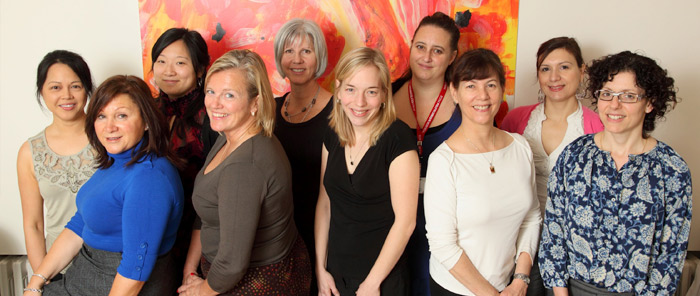
Teamwork is at the heart of patient care at The Neuro’s ALS Clinic
Teamwork is always important at the MUHC, but never more so than when treating patients with ALS (Amyotrophic Lateral Sclerosis), also known as Lou Gehrig’s disease. “The nature and trajectory of ALS make a team approach to care essential at our clinic,” says Dr. Angela Genge, Clinical Director of The Neuro’s Clinical Research Unit and Director of the ALS Program. “Our experts depend on and support each other. Working together they are able to provide comfort and support to patients as well as family members and even friends who are caregivers. Our emphasis on teamwork is one of the key reasons the clinic has become a model for the multidisplinary approach to ALS.”
A debilitating and deadly disease of the nerve cells in the brain and spinal cord, ALS robs people of the ability to control their muscles. As it progresses, patients slowly lose the ability to swallow and, ultimately, to breathe. The disease is invariably fatal. Most people with ALS have a life expectancy of five years or less after diagnosis. They may face a range of difficulties, including physical disability, loss of employment and income and severe psychological stress. Caring for people with ALS also takes a heavy toll on family and friends.
“To help all these people, we need specialists in a whole range of different disciplines,” says Dr. Genge. “Our team members support these people – who come from across Quebec – in multiple ways and in multiple languages. They have a range of skills, allowing them to help patients and caregivers with physical, psychological and social support needs. We don’t have a hierarchal structure. Everybody has equal input and involvement.”
The clinic’s team includes an ALS specialist, a respiratory therapist, a physiotherapist, occupational and speech therapists, a nurse, a dietitian, a social worker and even two counsellors because ALS carries such a psychological burden,. Patients also have access to a neuro psychologist when needed. “The contributions of each team member are important and equally valued,” says Dr Genge. “That’s the way it’s been from the beginning and it’s absolutely critical for care.”



